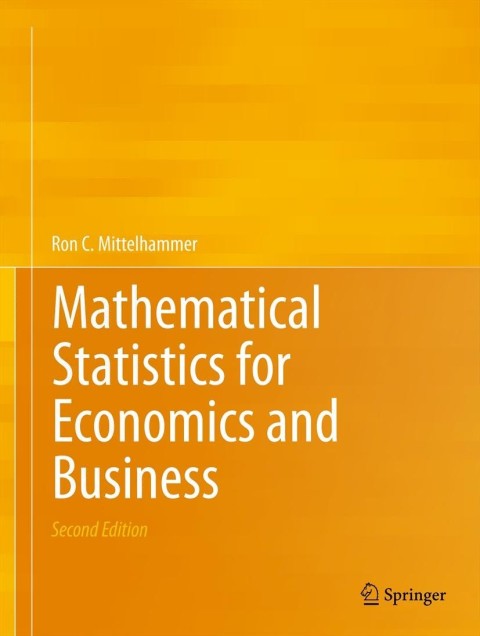A business consultant to the ACME Textile Co. suggests that the estimator (hat{beta}^{*}=left(mathbf{x}^{prime} mathbf{x}+kight)^{-1} mathbf{x}^{prime} mathbf{Y}) might
Question:
A business consultant to the ACME Textile Co. suggests that the estimator
\(\hat{\beta}^{*}=\left(\mathbf{x}^{\prime} \mathbf{x}+kight)^{-1} \mathbf{x}^{\prime} \mathbf{Y}\)
might be useful to consider as an alternative to the least-squares estimator of \(\beta\) in the preceding problem (the estimator \(\hat{\beta}^{*}\) is a special case of the so-called "ridge regression" estimator in the statistics literature). In this case,
\(\mathbf{Y}=\left[\begin{array}{c}Y_{1} \\ Y_{2} \\ \vdots \\ Y_{\mathrm{n}}\end{array}ight]\) and \(\mathbf{x}=\left[\begin{array}{c}X_{1} \\ X_{2} \\ \vdots \\ X_{n}\end{array}ight]\)
and \(k\) is some positive constant.
(a) Is the estimator unbiased? If the estimator is not unbiased, derive an expression for the bias.
(b) Derive an expression for the variance of this estimator.
(c) Is the estimator a consistent estimator of \(\beta\) ? Justify your answer, being explicit about any assumptions you have made about the behavior of the \(x_{i}\) values.
(d) Compare the mean square errors of the least-squares estimator and the estimator \(\hat{\beta}^{*}\). Is one estimator superior in MSE to the other \(\forall \beta\) and \(\sigma^{2}\) ? If not, can you characterize the problem conditions under which each estimator would be superior in terms of MSE?
Step by Step Answer:

Mathematical Statistics For Economics And Business
ISBN: 9781461450221
2nd Edition
Authors: Ron C.Mittelhammer





